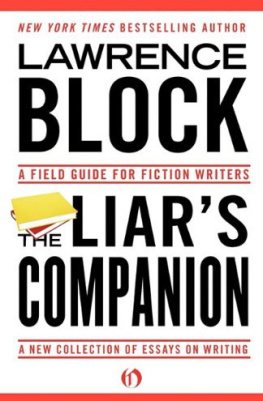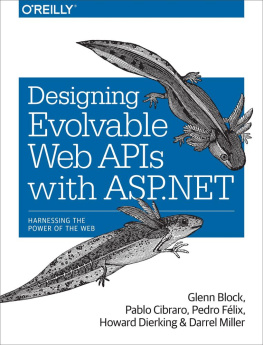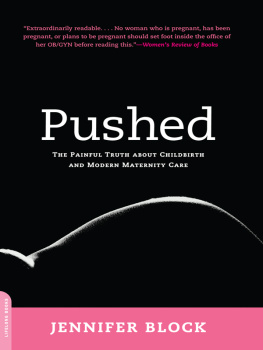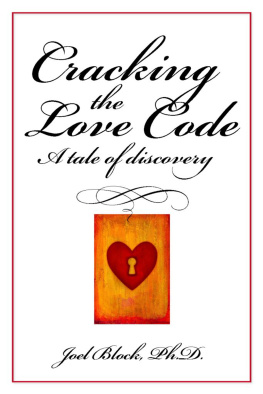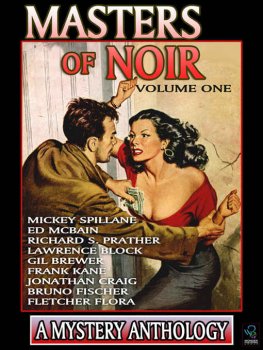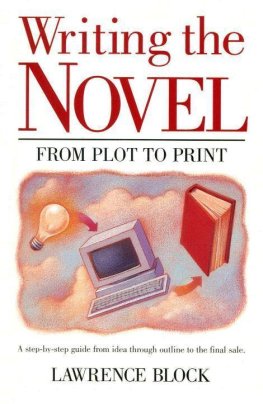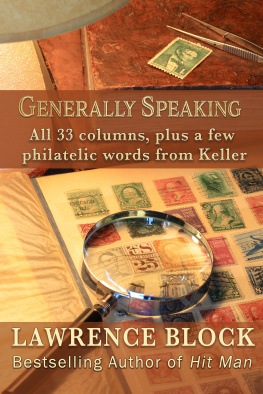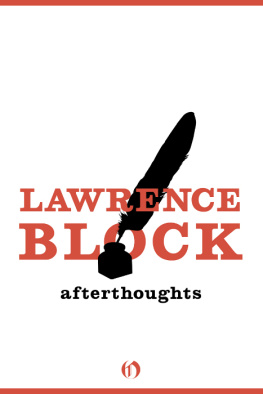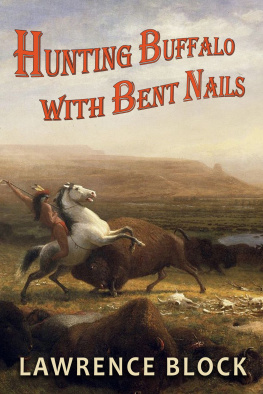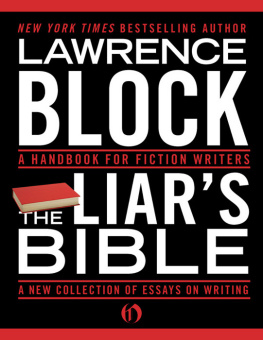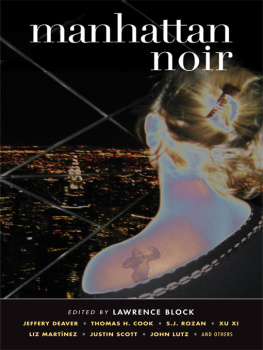
The Liars Companion
A Field Guide for Fiction Writers
The Liars Companion
A Field Guide for Fiction Writers

LAWRENCE BLOCK

Introduction
F or fourteen years, from 1976 to 1990, I wrote a column on the writing of fiction for Writers Digest. At the very beginning it was an every-other-month affair, alternating with a column on cartooning, but in short order the magazine dropped the cartoonist, and my column went monthly.
I have to say it did me a world of good.
I make my living writing books, and its an unstructured and uncertain occupation. So it did me good to have one specific thing to do every month, and to be assured of receiving a monthly check for it. The numbers on those checks were never enormous; I got $150 a column at the beginning, and coaxed enough raises out of them over the years to get that number up to $500 at the end. Now that was nothing to sneeze at, but neither was it anything to drool over.
But the money was the least of it.
Over the years, four books emerged. The first was Writing the Novel from Plot to Print, specifically commissioned by Writers Digest Books after Id been writing the column for a year or so. Its never been out of print, and now, Im pleased to report, its available as an Open Road ebook.
Next was Telling Lies for Fun and Profit. It was published in 1981, and composed of past columns, and I offered it to WD Books but the editor wasnt enthusiastic; my agent sent it to Don Fine at Arbor House, who published it in hardcover and trade paperback and placed it with the Book-of-the-Month Club.
WD Books looked at how Telling Lies was doing and felt theyd missed the boat, so when I had enough columns for a second volume, they got on board right away. I called the book Spider, Spin Me a Web. Both books have been in print pretty much continually since their original publication, and both are available now from HarperCollins in either trade paperback or ebook form.
Thats been gratifying, believe me. When I write something, I really like to see it remain available for people to read. My great friend, the late Donald E. Westlake, was asked by a mutual friend why hed agreed to the republication of some of his very early work. The money couldnt amount to that much, the friend said, so why bother with the deal?
The difference between being in print and out of print, Don told him, is the difference between being alive and being dead.
Right.
And yet the books arent the most important benefit I got from that column, either.
I could string this out, and talk about other fringe benefitsthat the column gave me sufficient credibility as a writer about writing so that I could successfully develop an interactional writing seminar and present it all over the country for a couple of years, that this in turn led to my writing and self-publishing a book version of the seminar. (Write for Your Life, and it too is available as a HarperCollins ebook.) That the column brought me speaking invitations. That it very likely led some people to have a look at my novels.
All true, and all good. But secondary, really, to the most important thing that column did for me, and Ill quit stalling now and tell you what that was.
It made me a better writer.
O nce a month I had to come up with an idea for a column, some aspect of writing to address in around 1,800 words. Now after Id been doing the column for a year or so, then-editor John Brady discovered flow charts, and decided that was what was needed for the optimal functioning of his editorial operation. So he wrote me a letter requesting that I supply him with the subjects I intended to cover in the next six months.
Now how the hell did I know? I didnt, obviously, and told him as much, and he told me this was really important, and after wed gone back and forth a time or two more, I sat down and wrote out a list. Then, a month at a time, I wrote and submitted my columns, and not a one of them could be found on that list. So much for the flow chart.
I wasnt being deliberately contrary. (Well, maybe a little.) But there was no way I could know in advance what Id be able to write about in a given month. There were more than a few months when I didnt know what I was going to write until the day when I sat down and wrote it.
But an idea always came along. I dont think I was ever once late with a column.
So it would seem that the need to produce a column was always very much in my mind, if not consciously on it. And one way or another this column-to-be-written informed both my reading and my writing.
Its a rare writer indeed who is not also a world-class reader. I had always been an omnivorous reader, and one blessed with a hearty appetite. When I became a writer, I immediately became a better reader; I found myself noticing what worked or didnt work in the story I was reading, and in turn became a better writer when I found myself applying what Id noticed to my own work.
Writing about writing added another level to the whole enterprise. I continued to read for pleasureI dont think Ive ever been able to read in its absencebut now I would come across elements in what I read that got me thinking, and that now and then provided me with the subject matter for a future column.
Similarly, writing about writing made me more aware of elements in my own work.
I dont want to belabor this, it hardly seems worth it, so Ill just state it again and let it go at that: writing that column for fourteen years made me a better writer.
W hat on earth qualified me to tell people how to write?
Id get that question occasionally, and it struck me as a reasonable one. Id generally respond by explaining that I didnt tell people how to write, that I would never presume to do such a thing. While my column was instructional by definition, I didnt provide a lot of specific instruction. For the most part I talked about something Id noticed in my work or anothers, and how Id solved (or at least coped with) something that had come up in the course of a book or story. I was endeavoring to share some of what Id experienced and observed. If that constitutes teaching, then I was a teacher. If not, not.
Because I never thought of myself as teaching in the traditional sense, I never wanted to present the same lesson twice. WDs various editors over the years would have liked to see me return to the same basic topics rather more often than I did. But I really wasnt interested in repeating myself.
Now in some magazines repetition is inevitable. If youve got a home gardening magazine, you cant decide not to write about tomatoes simply because you ran a comprehensive tomato article five years ago. There are folks out there who werent reading the magazine back then, and the others, whove been with you all along, wont remember that old article. Or, even if they do, they wont mind reading it again.
But once Id written something, I wouldnt go back to it unless I had something reasonably interesting to add. And that had its advantages, especially when it came time to collect the columns into a book. It wasnt just the same thing over and over again.
I stopped writing the column in 1990. It wasnt a very happy parting of the ways, and I left with a sour taste in my mouth. And I figured that all in all it was more than time for me to be done writing about writing. I seemed somehow to have written close to half a million words on the subject, and that was plenty.
Next page
